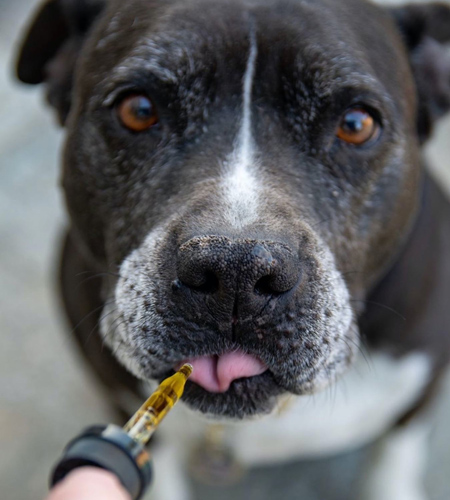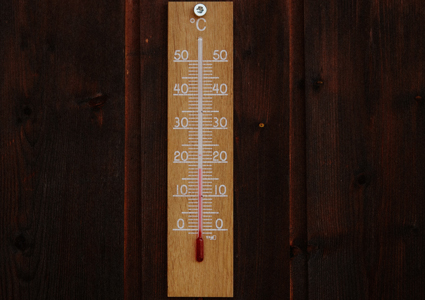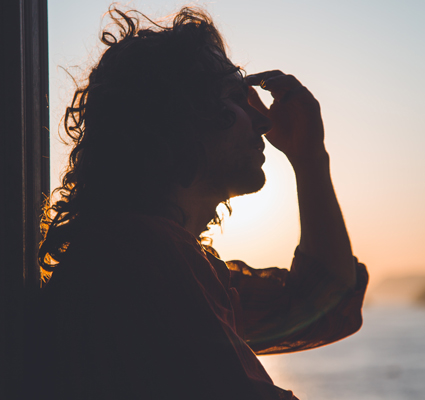Dog-tired, you fall into bed, the alarm clock rings in seven hours. But instead of slumbering blissfully, the tormenting sleep problems reassert themselves. You’re not alone in this; sleep disorders are a widespread disease and afflict millions of people every night. Body and mind can be equally responsible, but often there are no exact reasons for sleep disorders.
I. Introduction
Sleep is the most important recovery phase for the human body. If it is disturbed, it can lead to considerable physical and mental complaints. Conventional medicine usually treats sleep problems with chemical sleeping pills, which can have problematic side effects. More and more frequently, voices are being raised that praise CBD for sleep disorders and have had very good experiences with it. We would like to go into more detail below about what sleep disorders actually are and how CBD can positively influence sleep.


What are sleep disorders and how do they develop?
Sleep disorders include various symptoms and manifestations. For some people, the night’s rest is disturbed by constant waking, while others suffer from a prolonged time to fall asleep. A disturbed sleep rhythm or a twisted day-night rhythm also belong to sleep disorders.
The causes are not always obvious, sometimes sleep problems literally arise out of nowhere. This can go so far that going to bed becomes torture for those affected. The fear of lying awake for hours again and suffering from lack of sleep in the morning dominates the thoughts. Problems around sleep can arise because of the following triggers, among others:
- Shift work: irregular working hours upset the day-night rhythm. Even experts in sleep medicine know that a permanently altered sleep rhythm can lead to long-term sleep problems.
- Medication: Some medications can trigger problems falling asleep and staying asleep as a side effect.
- Lifestyle: Personal lifestyle can have a significant impact on sleep quality. The cell phone on the nightstand, a sumptuous meal before bedtime, and the wrong mattress often have a significant impact.
- Health complaints: Anxiety, stress, depression and even pain can make sleeping a problem.
Those who cannot sleep in the long term may eventually resort to sleeping pills out of desperation. In the first step, this can provide a quick remedy, but the negative properties of chemical sleep aids are often drastically underestimated. Patients with sleep problems accept that they will be overtired the next day and may even be at risk of addiction to medication.
According to customer reviews, CBD is increasingly becoming a bestseller when it comes to optimizing sleep quality. The natural drops are not addictive and are said to be able to trigger and improve natural sleep. To understand the effect, we need to look at what CBD is and how it is used.
What is CBD oil and how is it made?
CBD is a natural active ingredient of the hemp plant, which has already attracted attention in many studies. To produce CBD oil, the CBD flowers of the hemp plant are first harvested. Using CO2 extraction processes, the “raw CBD” is extracted, which is finally dissolved in a carrier oil.
A distinction must be made between full-spectrum CBD and mono-CBD. The latter is significantly weaker in its effect. Full-spectrum oils benefit on the one hand from the CBD content, but also from the interaction of CBD with terpenes. These increase the effect of CBD via the entourage effect.


How is CBD oil used and how long does it take to work?
Every CBD user makes his own experiences with the product over time and thus finds his feel-good dose. In order to sleep better, it has proven to apply CBD products about 30 minutes before bedtime. The hemp oil can be dosed well. Through the thin mucous membrane, the active ingredient can spread quickly in the body and thus unfold its effectiveness within 30 to 60 minutes.
Tip: If you are already using a sleeping pill, ask your doctor about potential interactions. It is best not to simply discontinue sleeping drops without being asked, sometimes discontinuation symptoms can occur.
II. CBD Oil and Sleep Disorders
CBD itself is not a miracle drug, even though hemp is often referred to as such. However, CBD does not develop its effectiveness on the basis of miracles, but via the human endocannabinoid system. In the case of existing sleep disorders, CBD can have an effect in three different ways. On the one hand, it has been proven to alleviate anxiety, which is often a trigger of sleep disorders.
On the other hand, CBD is also able to reduce pain, which in turn can disrupt natural sleep. Since CBD gently induces sleepiness when taken in higher doses, it may have a sleep-inducing effect as a sleep aid.
A study that focuses on a combination of melatonin and CBD as effective also appears interesting. Is this a new secret tip for reducing sleep disturbances? In fact, there seem to be findings that the combo of these two products can show very high efficacy even in severe sleep disorders. Melatonin is the so-called sleep hormone, cannabidiol is an active ingredient with sedative properties. The combination of CBD and melatonin is therefore understandably interesting when it comes to the therapy of sleep problems.


5 quick tips for better quality sleep
Regardless of medication, melatonin, or CBD, there are other ways you can promote healthy sleep. Nightly rest is important for your health, and in the long run, sleep disorders can lead to significant secondary diseases in people. Therefore, here are 5 tips on how you can additionally promote falling asleep and staying asleep.
- Adjust your sleeping temperature: If your bedroom is overheated, your body won’t get any rest. A moderate 18 degrees is enough to enjoy pleasant rest and be fitter the next day.
- Analyze your sleep patterns: What is it that keeps you waking up? Do you have to go to the bathroom frequently? Are the neighbors above you making noise every night? Sleep disturbances can occur for seemingly no reason, but sometimes there are triggers that disrupt your night’s rest.
- Ban electronic devices: Before falling asleep, quickly scroll on your cell phone or watch a series on your tablet? To sleep better, it’s best to ban electronic devices from your bedroom altogether. Instead, listen to some relaxing music or meditate.
- No stimulating substances: Some bodies are sensitive to stimulants like caffeine or teein. Avoid them at least six hours before bedtime to avoid counteracting natural fatigue.
- The optimal bed: Good sleep also depends on the quality of the bed. Is your mattress too hard or do you not have enough space at night? Optimize your sleeping place to improve the quality of sleep.

III. possible side effects of CBD oil
Die WHO hat CBD-Produkte als gut verträglich und unbedenklich eingestuft. Dennoch lassen sich Nebenwirkungen nie ganz ausschließen. In den meisten Fällen werden sie durch zu hohe Anfangsdosen verursacht. Dem kann man vorbeugen, indem man anfangs nur eine geringe Menge CBD verwendet und die Dosis schrittweise erhöht. Im Durchschnitt nehmen die Anwender bis zu 300 mg CBD pro Tag und mehr zu sich. Zu Beginn reicht es jedoch aus, den Körper mit 2 bis 3 Tropfen täglich an das Cannabidiol zu gewöhnen.
Falls doch Nebenwirkungen auftreten, berichten die meisten Betroffenen von leichten Magen-Darm-Beschwerden, Mundtrockenheit oder erhöhter Müdigkeit. Letzteres ist besonders bei der Behandlung von Schlafstörungen erwünscht und zeigt, wie sinnvoll der Einsatz von CBD sein kann.
Wenn Sie bereits mit Schlaftabletten oder anderen Schlafmitteln behandelt werden, fragen Sie Ihren Arzt nach möglichen Wechselwirkungen. Erfahrungsgemäß ist der Einsatz von CBD problemlos möglich. Oft gelingt es den Patienten sogar, die Dosis der Schlafmittel zu reduzieren, da CBD eine gute Wirkung zeigt.
IV. Conclusion
For quite some time now, CBD oil has become a real insider tip for sleep disorders. Various medical studies have already proven the effectiveness of CBD for anxiety, pain, inflammatory disorders, and inner turmoil. All of these four factors come into consideration as causes of sleep problems. Therefore, due to the effectiveness of CBD, it is possible that sleep is improved in an indirect way.
If you want to try it for yourself, make sure to use an organic CBD product. Ideally, go for a full-spectrum product, as it triggers the entourage effect via the endocannabinoid system and the interaction with terpenes. This way, the overall effect of CBD drops is enhanced and the positive influence on falling asleep can be increased.
If you decide to combine CBD and melatonin, use a regular full-spectrum CBD oil. You can combine this with melatonin drops to get the best effects of both substances for you. Our tip: If your insomnia lasts longer and natural sleep aids like CBD don’t show any effect, make sure to see your doctor. In this case, there may be a physical illness at the root of the problem!



